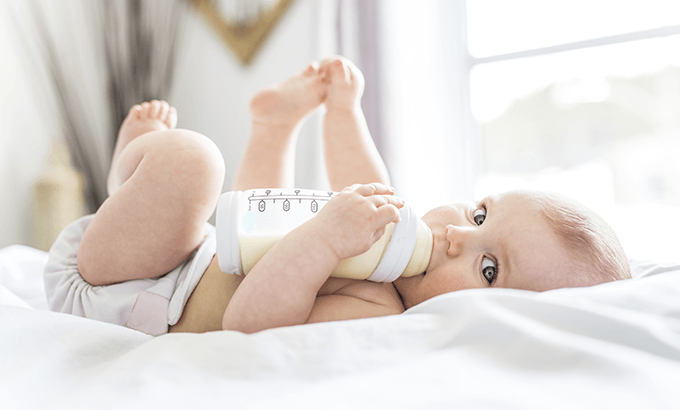Some babies have fine motor skills necessary to hold a bottle and be able to drink on her/his own, but this process is the earliest 6 months for most babies. Infants in the other minority also acquire this skill at the latest at 10 months of age. The only way to tell if your baby can hold her/his own bottle is to give her/him a bottle and watch what happens. If he/she has the motor skills to put the bottle in his/her mouth and can now understand that he/she will put it down when he/she is full, you can try giving him/her a bottle every day.

But no matter how many months your baby is, don’t be tempted to speed up the feeding process by putting a bottle in her/his mouth. An unsupported bottle ritual can force your child to overeat or even suffocate.

Apart from that, if your baby falls asleep with the bottle in his/her mouth, formula or breast milk may collect around his/her teeth and cause tooth decay. In order to prevent tooth decay, you should not let him/her sleep with a bottle constantly and leave him/her alone with the comfort of this situation while feeding with a bottle.
According to doctors, bottles can also increase your baby’s risk of ear infection. If your baby is lying down during feeding, the fluid can flow from the mouth to the eustachian tubes of the ears, where it can be transmitted and cause infection.

Another important reason not to feed him/her with a bottle or not to let it hold herself/himself all the time:
You can reduce the time you spend alone with your baby and deprive them of your love. Holding and hugging your baby during feeding gives him/her a sense of safety and security and helps to increase his/her trust in you with love.
